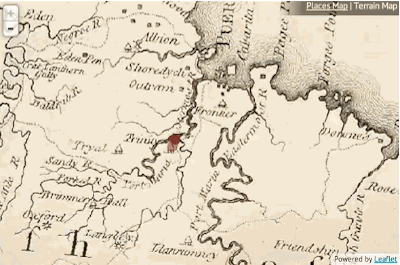LA ALGABA (SPAIN) (AFP) -
“They would say: ’We have to eliminate the red seed’,” said Rogelia Beltran as she recalled how her grandfather died in a purge against leftists in southern Spain during the country’s civil war.
The bloody conflict pitted forces loyal to the elected Socialist-led government known as Republicans against rebel Nationalist troops that rose up under General Francisco Franco in a military putsch.
After Nationalist troops staged a coup on July 18, 1936, large landowners in the southern region of Andalusia aided the revolt by persecuting day labourers who they believed backed the government.
In Beltran’s hometown of La Algaba the pro-Nationalist landowners were led by a matador, Jose Garcia Carranza, also known as “El Algabeno”, who became known as the “killer of bulls and reds”.
Civilian supporters of the military uprising like “El Algabeno” received “carte blanche” from the military men who quickly seized control of the region, historian Francisco Espinosa told AFP.
“They were members of the rural bourgeoisie” who offered to repress opposition to the coup “mounted on their own horses and using their own weapons”, he said.
Eighty years after the war began, the memory of the purge carried out against leftists in Andalusia, known today for its sandy tourist beaches, lives on.
– Hunted like animals -
Paramilitaries and the rebel troops “carried out clean-up operations in the mountains” where leftists and unionists sought sanctuary, said Juan Jose Lopez, a member of an association of victims of the civil war and the dictatorship that followed.
His great uncle was killed in November 1936 in a raid near the village of El Madrono.
“It was like a deer or wild boar hunt. The raiders would sweep the mountains so the prey would flee” and then shoot them, he said.
As he speaks he holds a photo of his relative which is part of a travelling exhibition called “The DNA of Memory” which aims to give visibility to victims of the conflict eight decades after it started.
A 1977 amnesty law prevents Spain from investigating and trying the crimes of the civil war era and the repressive right-wing dictatorship of General Francisco Franco that followed until his death in 1975.
“They did horrible things. They would leave bodies scattered in the streets as an example and would prevent them from being collected so they would be eaten by animals,” said Antonio Narvaez, 83, a retired steelworker.
He was just three-years-old when his father was killed in Marchena. A day labourer who did not belong to a union and had no political affiliation, his only crime was that he knew how to read, said Narvaez.
“He would read the press to his colleagues,” he said with a toothless smile.
Widows were also punished. Supporters of the right-wing coup would confiscate their homes and goods, leaving them without work and stigmatised with young children to raise.
“They would shave their hair off and parade them around the town,” said Antonio Martinez, 80, a retired hotel worker whose father was repressed during the war in the town of Escacena del Campo.
– ’Ideological purge’ -
Beltran, a 53-year-old nursing assistant, said the idea was “’if you don’t think like me, I will eliminate you’ and that is called genocide”.
“It was an ideological purge which also included teachers, lawyers, journalists, writers with a liberal ideology,” added Paqui Maqueda, 52, a social worker whose great-grandfather and three great-uncles were killed in the town of Carmona near Seville.
She gave the example of the celebrated Spanish poet Federico Garcia Lorca, known for works including the play “Blood wedding”, who was shot for his suspected leftist sympathies by supporters of the military uprising near the southern city of Granada in 1936.
“But the lower classes were the most repressed,” said Maqueda.
Plagued by high levels of illiteracy and miserable living conditions, farm workers had formed a strong union movement.
And wealthy landowners like “El Algabeno”, who is said to have speared day labourers as if they were bulls, decided to quash their movement, historians and victims say.
“Many of Garcia Carranza’s crimes were gathered and detailed by witnesses and contemporaries,” said Diego Aguera, the mayor of La Algaba, the matador’s hometown.
In a narrow street of white houses near the bougainvillea-lined main square of the town, a plaque reads: “Jose Garcia Carranza Street”.
Aguera in March got the town hall to approve changing the name to “Equality Street” because of the “countless murders he carried out, the majority in cold blood, the countless detentions and tortures he practiced”.
Several family members of the late matador, contacted by AFP, refused to be quoted about his legacy.
“Sometimes you think you are doing good and you are doing bad,” said one of his great-nieces who declined to be named.
But for now, the street sign bearing Carranza’s name remains in place as local authorities wrestle with the bureaucracy needed to change it.
by Anna Cuenca








































